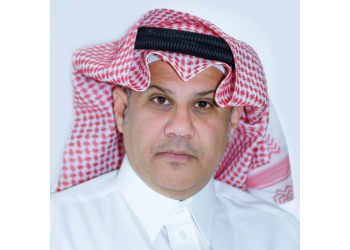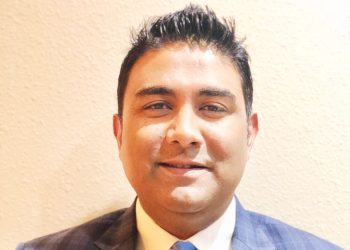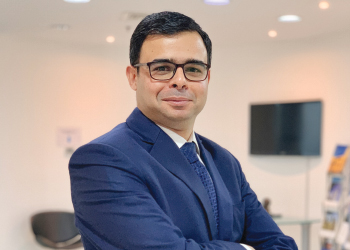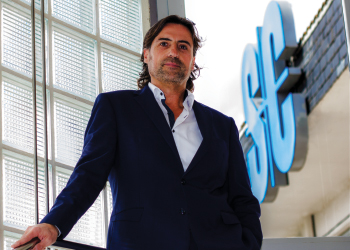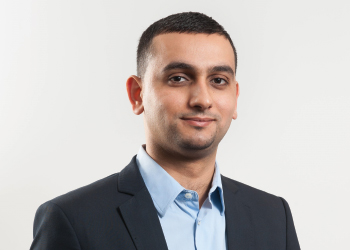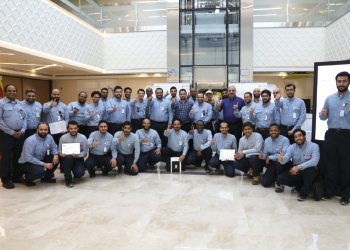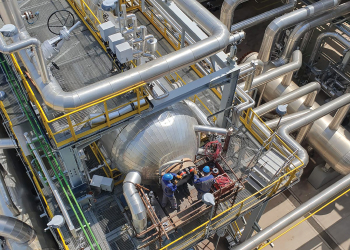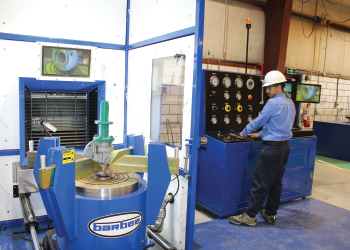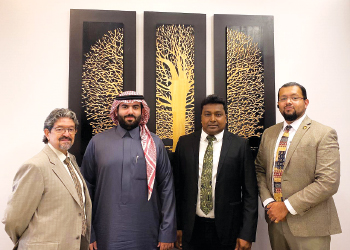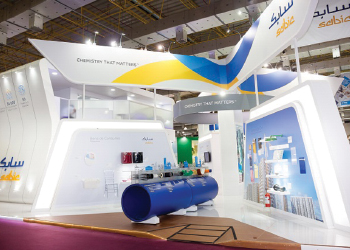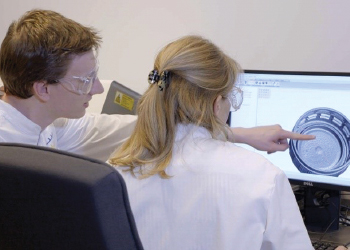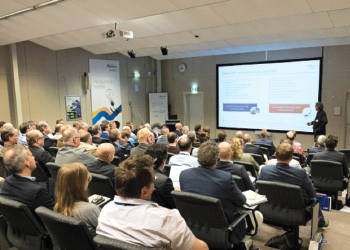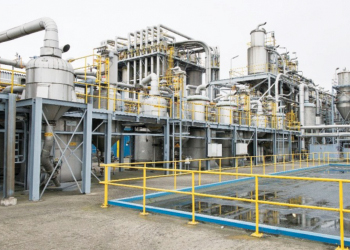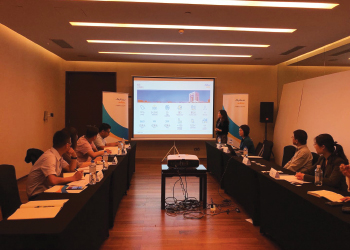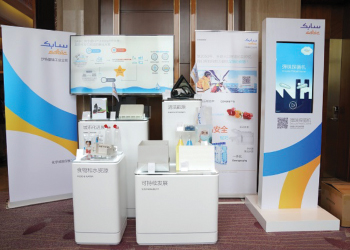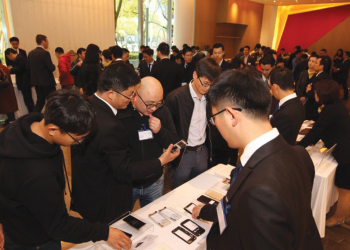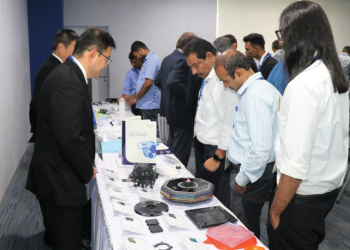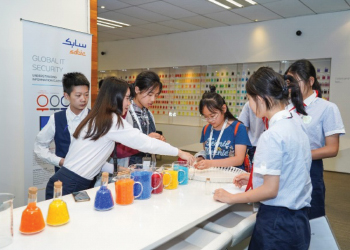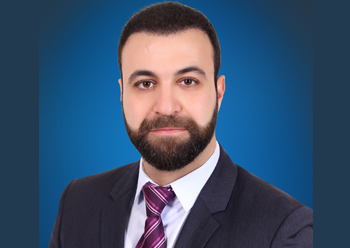
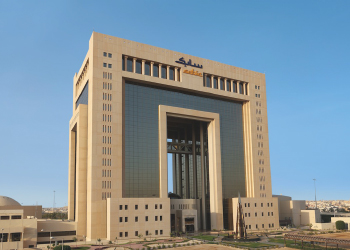 Sabic will chart a course of its own even after Aramco buys its majority stake
Sabic will chart a course of its own even after Aramco buys its majority stake
Sabic, the world’s third-largest chemical company with 33,000 employees in 50 countries, is looking to boost its own transparency, find synergies and drive growth
A high-level committee of Saudi Basic Industries Corporation (Sabic) executives are working on a post-Aramco IPO (initial public offering) strategy, including possible acquisitions, as the kingdom proceeds with the critical stock market offering.
"I am very optimistic," Sabic Vice Chairman and CEO, Yousef Al Benyan, told a small roundtable of reporters at its headquarters in Riyadh.
Sabic, the world’s third-largest chemical company with 33,000 employees in 50 countries, is looking to boost its own transparency, find synergies and drive growth after the Aramco IPO. In a series of closed room briefings at its headquarters, senior executives — including the firm’s corporate finance and petrochemicals boss — worked to clarify the future structure for the business once Aramco goes live.
"We don’t use the word integration," Al Benyan said. "There are some misconceptions around the relationship in the future between Aramco and Sabic, but Sabic will remain a publicly-listed company," he added.
Aramco agreed to buy a 70 per cent stake in Sabic from Saudi Arabia’s Public Investment Fund (PIF) in March for $69.1 billion, providing a major cash injection for the PIF and a potential boost for Aramco’s downstream operations if the two were to combine. The share purchase remains subject to various closing conditions and regulatory approvals. The deal between the three entities was seen as moving money from one pocket of the Saudi state to another, given the government will remain their ultimate owner.
 |
Al Benyan ... negotiations in progress |
"We will be negotiating with Aramco on which of their assets will be acquired by Sabic," Al Benyan said, suggesting instead there will be a clear division between the chemical operations of Saudi Arabia’s two largest companies.
"We have not been able to identify them at this point because we have no access to them, and we are going through the antitrust right now," he added. "As soon as the antitrust is completed, we need to sit down together and create a synergy committee that is going to drive the value between both companies," he said, saying the review should be completed no later than the first quarter of 2020.
"I’m not worried about how Sabic is going to operate in the future," Al Benyan added.
Sabic executives say major projects in its core division of petrochemicals, where it’s a global leader in the production of polycarbonates, are continuing as planned. It wants to grow its agri-nutrients fertilizer business 80 per cent by 2025, and is investing further to claim a leadership position in specialty chemicals — despite worries over the state of the global economy.
"There is a big trend against free trade and globalisation, unfortunately being fuelled by politicians not only in emerging markets but in developed markets too," Al Benyan said. "This could really slow down the economy," he warned.
Executives identified key growth markets in the United States, Latin America and specifically in Africa — where talks on a major transaction have been underway for the last 12 months.
"If you asked me today if I was willing to acquire a petrochemical company in Africa or in Latin America, I would tell you no," he said. "But are you willing to acquire a solutions company? That’s a different story," he hinted. "Hopefully from Q1 (the first quarter) next year, we will have something to announce in Africa," Al Benyan added, suggesting that the transaction would be worth around $2 billion, but stopped short of providing additional details.
 |
Al-Fageeh ... spending hugely on R&D |
The company posted a net profit of 830 million riyals ($221 million) in the quarter ending September 30, down from 6.1 billion riyals in the same quarter a year earlier. The company took an impairment loss of 1.5 billion riyals on its investment in Swiss chemicals firm Clariant, which resulted in an 86 per cent drop in its third-quarter net profit.
Sabic’s joint ventures and acquisitions around the world are set to continue as it seeks to widen its reach, according to the executive vice president for petrochemicals at the Saudi chemicals major.
Abdulrahman Al-Fageeh added that sustainability would be at the core of the company’s business going forward, although he would not disclose how much money Sabic allocates for research and development (R&D) going into circularity.
The executive said he could not give details about the proposed acquisition by Saudi energy major Aramco, which plans to become the majority owner of Sabic by acquiring a 70 per cent stake for $69bn.
However, higher costs to produce greener products from sustainable feedstocks has so far been a key impediment for intake among end customers.
According to Al-Fageeh, that is not the main reasoning anymore, and it is end consumers the ones demanding more sustainable products as public awareness rises.
Sabic said in October it was targeting an industry first by launching a polycarbonate (PC) based on certified, renewable feedstocks.
"This is just the start. This has value for us and we want to pursue [this line of work]. As well as achieving a more circular economy, this benefits the environmental and the economy," said Al-Fageeh.
"We need to make sure we have a very sustainable business for the company – our customers and business partners are requesting this, as well as [end market, consumers products] brand owners."
The executive said, however, that it would be difficult to quantify how much Sabic assigns to R&D because the issue is looked at as "part of our renovation" and spills over to every project the company starts up.
"Given the way we operate, it would be unfair to give you some numbers. R&D is part of our renovation and we call it an investment to make sure we have operations based on safe assets," said Al-Fageeh.
"Frankly speaking, R&D is not only the money we spend on R&D [activities] but more in a cross-wise way – in the development of our people or in our assets investments themselves.
"We are spending huge resources [on R&D]," he added.
Sabic’s annual report for 2018 does not specify either spending on R&D. Its Sustainability Report 2018 is also scarce in figures.
However, for a company like Sabic, headquartered in a country sitting above vast amounts of crude oil, hardly circular products based on fossil fuels are destined to continue being its main offering.
Sabic’s ways of producing really matter. The company has become a key, major petrochemicals, with operations spanning globally.
Al-Fageeh diagnosis on crude oil may indicate that there is still a long way to achieve a non-fossil fuels petrochemicals industry.
"Crude oil will continue to be our focus for cracking and for production of petrochemicals," he said.
Those operations spanning the globe include projects from China to the US, from Europe to the Middle East.
However, Al-Fageeh did not give any update about the projects, which among others include a 50:50 joint venture in the US with energy and petrochemicals major ExxonMobil due to start up in 2022.
The petrochemicals complex would include a 1.8m tonne/year ethane cracker, two polyethylene (PE) units, and a monoethylene glycol (MEG) plant.
In China, the company is mulling a "world-scale" petrochemicals complex in the Chinese province of Fujian, south of Shanghai, although no definitive timelines have been set out.
While Al-Fageeh said he was "wrong guy" to ask about Aramco’s acquisition at Sabic, he also said he could not comment on Sabic’s 24.99 per cent stake at Swiss chemicals producer Clariant, and whether the company intends to keep that stake.
Sabic’s participation in Clariant’s capital structure came to be more turbulent than expected.
After the Saudi major came to the rescue of Clariant’s management, under siege by activist investors who kept increasing their stake at the company to force a change of course, the Sabic-appointed CEO Ernesto Ochiello resigned only a few months later.
He is now an executive at Sabic again.
The former CEO Hariolf Kottmann returned to Clariant’s help in an interim basis.
At the time of Ochiello’s resignation, both companies also cancelled one of the tie-up’s stars: an enterprise for production of high performance materials.
Al Fageeh only said that, despite the enterprise’s negotiations sudden suspension, "high performance polymers is still one of the core businesses" at Sabic, adding that growth will continue to come from acquisitions when the right opportunities arise.
"As usual, Sabic is open to any opportunity. Growth cannot only be organic: it needs to be both [organic and acquisitions]."
There are growing signs that the US-China trade war is reducing business for US polyolefins producers in Asia, who were hoping the increasing capacities in their home market could be exported, mostly to China.
The reduction in business would give other low-cost producers, like those in the Middle East, a chance to maintain or increase market share in China.
But Al-Fageeh would not give concrete figures to back that up, and limited himself to call for freer trade and for tariff and non-tariff trade barriers to diminish.
"We don’t like difficulties. We are encouraging decision makers to make sure there are no barriers [to trade]," he said.
According to the executive, the September attacks on Aramco’s crude oil facilities, which overnight wiped out 5 per cent of global crude oil supply, is by now an old memory.
The attack carried out by Yemeni Houti rebels – although the US and Saudi Arabia said Iran could have been behind the attack – revealed how vulnerable Aramco’s facilities had become after Saudi Arabia’s inconclusive war in Yemen.
"Since the attacks, 50 per cent of supply to our KSA [Kingdom of Saudi Arabia] facilities was affected, but in less than a week Aramco was able to reduce that gap to 30 per cent [of supply affected]. Within 10 days, we also got back to normal operations," said Al-Fageeh.
"The impact was very negligible. Sabic has robust operations around the world that cater for such cases and we managed this [crisis] very well – we didn’t see any complaints from our customers."
Speaking to a group of innovators, investors and global leaders at the third-annual Future Investment Initiative (FII), Al-Benyan said that innovation and collaboration among global businesses will be crucial to meeting the UN’s Sustainable Development Goals.











































































